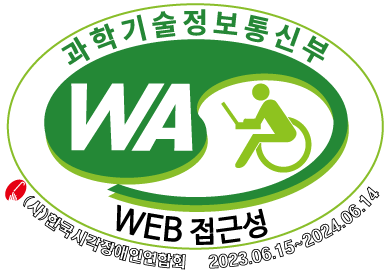Publications
What's New
The future of the public domain and open source in the era of AI
- Department International Cooperation and PR Team
- Registration Date 2023-10-23
- views 3396
The future of the public domain and open source in the era of AI
On August 31, the 2023 Public Domain and Open-Source SW License Conference was held in the Diamond Hall of the Plaza Hotel in Seoul. The conference was hosted by the Ministry of Culture, Sports, and Tourism and organized by the Korea Copyright Commission.

Under the title “The New Horizon of Copyrights in the Era of AI: Foreseeing the Future of the Public Domain and Open-Source SW,” the conference was an opportunity to discuss the future of the copyright field by sharing recent domestic and international research, industrial trends, and overseas cases of legal disputes around creative works in the public domain and open source. The conference consisted of two parts: an opening ceremony/awards ceremony, and presentations and lectures. There were also exhibition booths to help participants experience and better understand public domain and open source.
The conference began with a gayageum performance by Seo Yeji, a YouTube-famous gayageum player known online as YEJIgayageum, followed by an awards ceremony for honorary and open-source contributors as well as the winners of the 15th Public Domain Creative Works Competition. The honorary contributors were the writer Jeong Eun-hye and YEJIgayageum. The merit plaque for contributions to open source was awarded to Hwang
Eun-gyeong, Head of the Technology Part at Kakao. “I’ve donated three of my art works, “Ryota the Cat,” “Fraternal Twin Sisters,” and “Giro the Puppy” to the public domain. These are beloved by the public and I’d like anyone to use them,” said Jeong Eun-hye. Jeong came to be known to the public through a South Korean drama entitled Our Blues. She is also an artist with a disability.
The awards ceremony was followed by presentations and lectures about open-source SW licenses and creative works in the public domain. As a keynote speaker, Choi Gyeong-jin, a professor of law at Gachon University and the President of the Korean Association for Artificial Intelligence and Law, discussed the importance of establishing policies and systems regarding the public domain and open source in a way that allows copyrights to be conducive to the development of artificial intelligence. In the Open Source session, Amanda Brock, CEO of OpenUK, used its activities as an example of the positive influence of open source and how open source provides a path forward in the AI era. She also highlighted the importance of participation and solidarity. James Gatto, Partner at the law firm Sheppard Mullin, shared the Stockfish vs Chessbase case, a legal case on the violation of open-source SW license. He explored the question of whether neural network weights should be open to the public under the terms of a General Public License. Jeon Eung-jun, a lawyer at the law firm Lin, explained copyright issues and hot topics in discussions related to AI based on the GitHub Copilot case and the Stable Diffusion case. Jeong Yun-hwan, a lawyer with Samsung Electronics, and Kim So-yim, a researcher at LG Electronics, explained the system of providing information and compliance management on the terms of open-source license in relation to the Osori project. The Osori project is a joint endeavor among the Korea Copyright Commission, Samsung Electronics, LG Electronics, and Kakao.
In the Public Domain session, Shyamkrishna Balganesh, a professor at Columbia Law School, discussed the cases of Google Books and the Andy Warhol Foundation in order to explore whether the principle of fair use can be applied to AI machine learning. As a one-person creator, YEJIgayageum shared her experience with creating content without worrying about copyright infringement, explaining how to use creative works in the public domain. As the last lecturer, Jennifer Jenkins, Professor at the Duke University School of Law and Director at the Center for the Study of the Public Domain, explained the implications of the public domain and Public Domain Day. Public Domain Day is January 1 every year, when the legal transition of copyrighted works into the public domain takes place.
(Source)
- Prev
- No previous post.
-
The future of the public domain and open source in the era of AIICPR Team 2023-10-23
-
The Seoul Metropolitan Library receives the IFLA Green Library AwardICPR Team 2023-10-20
-
Efforts to eradicate the illegal distribution of Korean contentICPR Team 2023-10-20
-
The 60th National Library Congress heldICPR Team 2023-10-20
-
Five exhibitions and performance events to be launched to share the charms of Korean culture with the world, starting with the Hangeul Experiment ProjectICPR Team 2023-05-22

